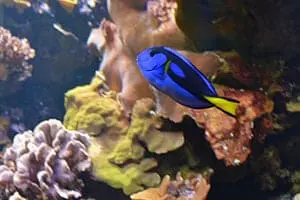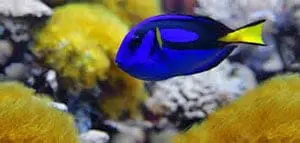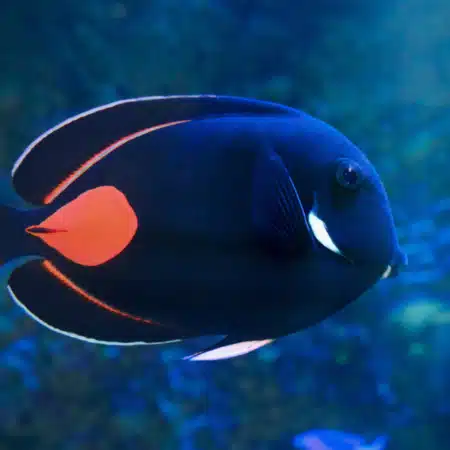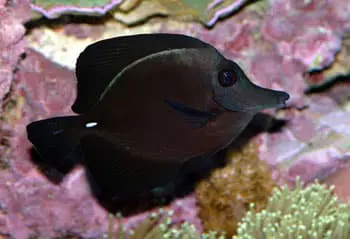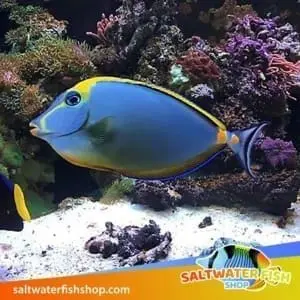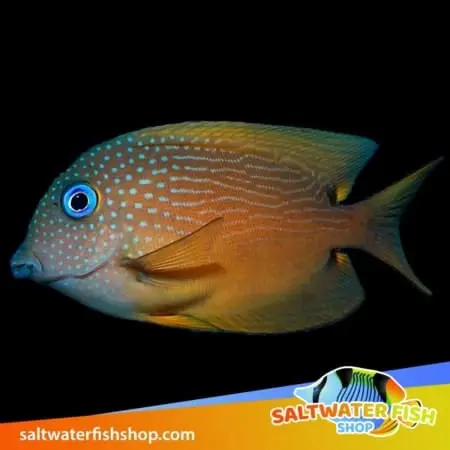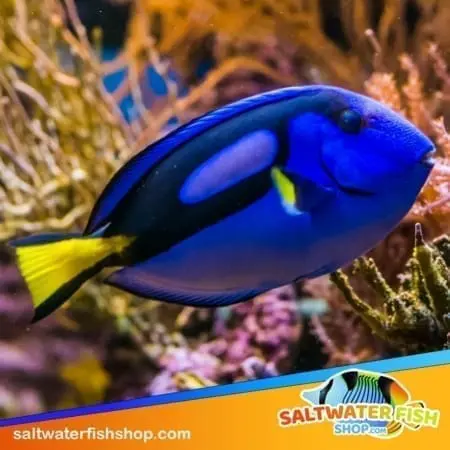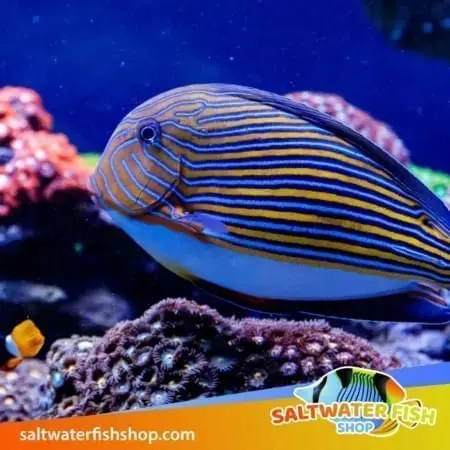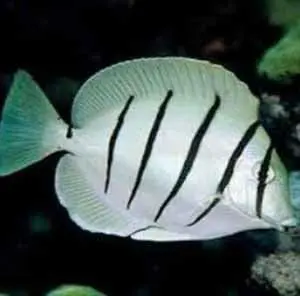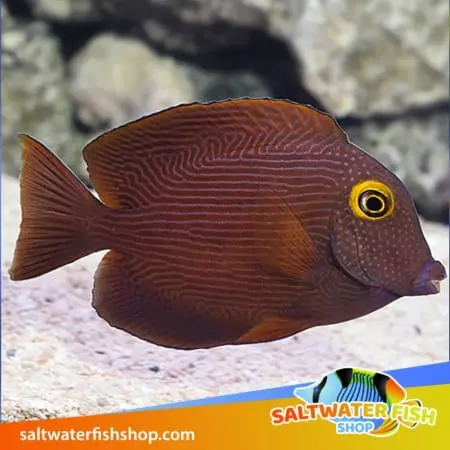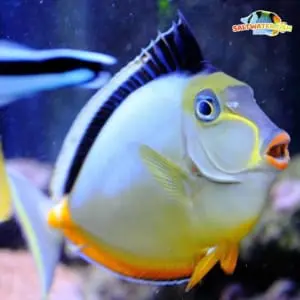Tang Water Conditions
Salinity:
Saltwater fish need saline water. This could be achieved by mixing salt into the aquarium water. The recommended amount is one half cup of salt per one gallon water. The appropriate salinity for a saltwater fish is 1.024- 1.025. Anything below 1.027 is safe for your tang fish for sale.
Water hardness:
Generally water hardness for tang fish is about 420 ppm. You should test the water hardness levels every week. Acceptable levels in aquariums with reefs are between 380-450ppm.
Oxygen:
Bubblers and water filters help necessary oxygen be distributed in tank water. Fish need oxygen in their water to survive. Aquariums with wide tops allow oxygen to also enter from the surface. Oxygen can also be supplied by pumps and air stones, plants, filters used as waterfalls, and less fish in the tank.
Size:
You need at least a 150 gallon tank to comfortably house one tang. When buying a tang, you have to take into consideration that as the fish grows, so should its tank to ensure proper tang fish care.
There are many species of tang fish, but most grow to be approximately 7.9 inches in adulthood. Tang males tend to be the larger sex.
Water Filtration:
Sea water is often replenished, but the same effect does not occur in a closed container. Toxic waste can build up in the tank if the filter is not changed often enough. Biological filters are used to clean tank water through using some bacteria for good.
Before purchasing your very own tang fish for sale, be sure to read Salt Water Fish Shop’s tang fish care sheet to ensure proper care and proper tang fish care for your new tang fish.
Below you will find detailed information on tang fish care provided by our biologist including the following:
-
- Surgeonfish care
- Tang fish care sheet
- tang for sale
- saltwater tang fish origin
- tang tank conditions
- tang fish size
- marine tang water filtration
- tang breeding
- saltwater tang feeding
- tang tank mates
- how to set up a tang fish tank
- tang fish lifespan
- saltwater tang water conditions
- tang fish diet
- how to care for tang fish
- tang water salinity
- yellow tang for sale
- Sohal tang for sale
- sailifin tang for sale
- purple tang for sale
- powder brown tang for sale
- powder blue tang for sale
- naso tang for sale
- kole tang for sale
- flame fin tang for sale
- convict tang for sale
- clown tang for sale
- blue tang for sale
- blue hippo for sale
- blonde naso tang for sale
- other saltwater fish for sale
-
Tang fish for sale have blade-like fins near their tailfins that they use when they quibble with each other, hence the alternative name, ‘surgeonfish’.
Origin
Tangs are mostly found in the Indo-Pacific Ocean, though due to their popularity, most tang species are available in local pet stores.
Tang Breeding
Pacific Blue Tangs get together in breeding groups at breeding time. The females lay about 40,000 eggs above coral reefs in the wild. The males swim through the eggs and fertilize them. If you want to breed your own tangs, purchasing a pair that has already bonded is recommended.
Tang Feeding
Algae is the main part of tang diet in the wild. Tangs are omnivores and enjoy mysis and brine shrimp in captivity. Their main diet should be full of plenty of marine algae and unflavored nori. With proper tang care, your tang should be fed once a day. If the tank is small and you only have a few fish, every other day feeding is fine.
Suitable Tank Mates For Tang Fish
Tangs are a normally nonterritorial species.Tangs of different species but of same size canoften thrive in the same tank if introduced at the same time. Tangs also do well with most clownfish, cardinals, large angels, wrassesand chromis.
Tang Lifespan
Tangs can live for up to thirty years if properly cared for. However, most tangs only reach 25, which is still very old for a fish. Most beginners struggle with proper tang fish care and this is often the cause of a young tang death.
Types of Tangs
There are more than eighty different colored tang in the ocean. Tangs are usally thin and small, but the largest species of tang can reach up to 40 inches. Tangs typically live for 25-30 years. Yellow tangs, blue tangs, clown tangs, convict tangs, naso tangs, achilles tangs, kole tangs, purple tangs, powder brown tangs, red sea sailfin tangs and powder blue tangs are common saltwater aquarium pets.














- Display 9 Products per page
-

Achilles Tang for Sale
$445.00 – $627.00 Sale!Select options This product has multiple variants. The options may be chosen on the product page -

Black Tang for Sale
$2,095.00 – $2,325.00 Sale!Select options This product has multiple variants. The options may be chosen on the product page -

Blonde Naso Tang
$169.00 – $315.95 Sale!Select options This product has multiple variants. The options may be chosen on the product page -

Blue eye tang for sale
$85.00 – $125.00 Sale!Select options This product has multiple variants. The options may be chosen on the product page -

Blue tang for sale
$89.95 – $149.95 Sale!Select options This product has multiple variants. The options may be chosen on the product page -

clown tang for sale
$99.00 – $159.00 Sale!Select options This product has multiple variants. The options may be chosen on the product page -

convict tang for sale
$67.00 – $119.00 Sale!Select options This product has multiple variants. The options may be chosen on the product page -

kole tang
$144.00 – $179.00 Sale!Select options This product has multiple variants. The options may be chosen on the product page -

naso tang for sale
$94.00 – $315.00 Sale!Select options This product has multiple variants. The options may be chosen on the product page

